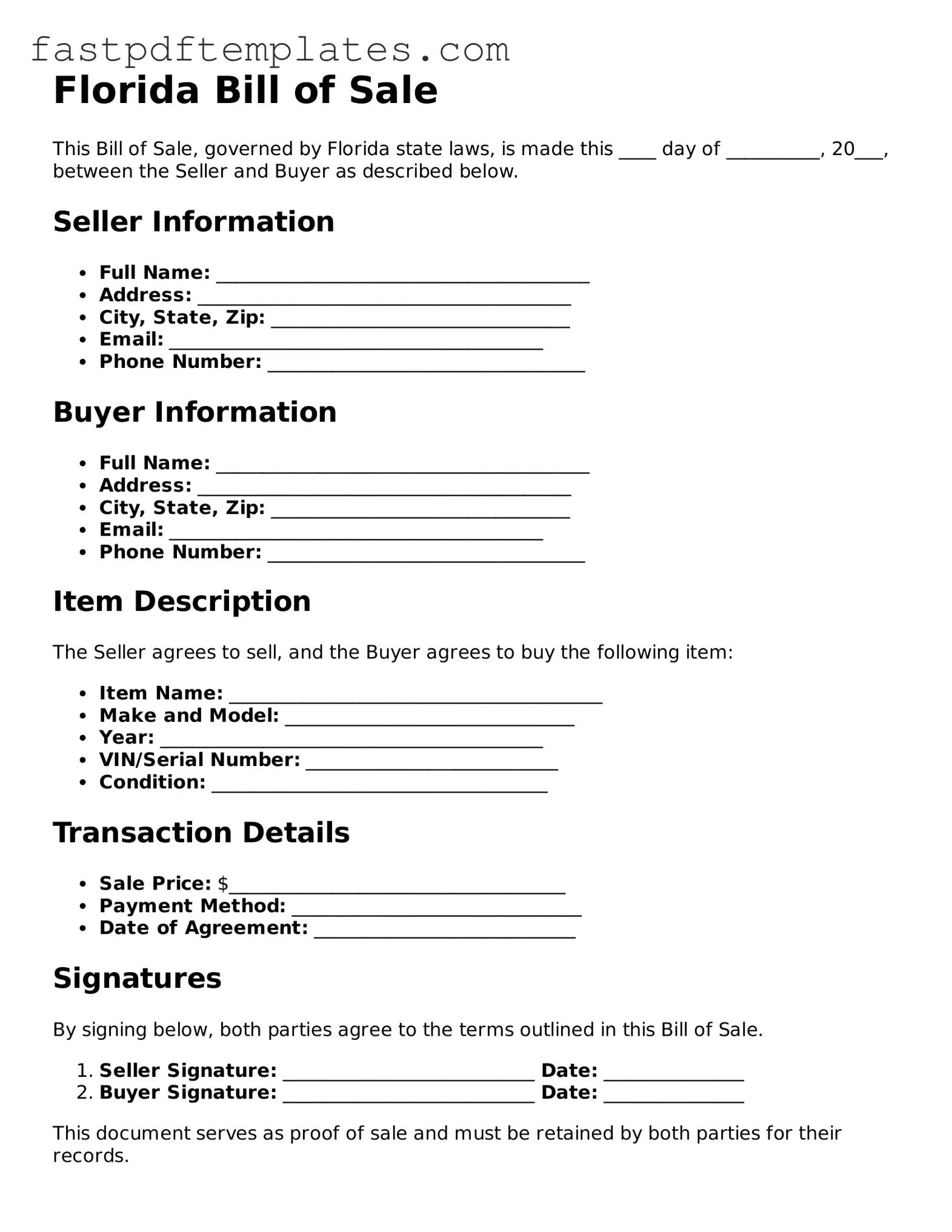The Vehicle Bill of Sale is similar to the Florida Bill of Sale in that it serves as a record of the transfer of ownership for a vehicle. This document typically includes details such as the vehicle identification number (VIN), make, model, and year of the vehicle. Both forms protect the interests of the buyer and seller by providing a clear record of the transaction, which can be essential for registration and title transfer purposes.
A Boat Bill of Sale functions similarly by documenting the sale of a boat or watercraft. This document outlines the specifics of the boat, including its hull identification number, make, model, and year. Like the Florida Bill of Sale, it provides legal protection for both parties involved in the transaction and is often required for registration with state authorities.
The Firearm Bill of Sale is another document that parallels the Florida Bill of Sale. It records the sale of firearms and includes details such as the make, model, and serial number of the firearm. This document helps ensure compliance with state and federal laws regarding firearm ownership and transfer, providing a clear trail of ownership.
An Equipment Bill of Sale is used when selling heavy machinery or equipment. This document outlines the specifics of the equipment, including its condition and any warranties. Similar to the Florida Bill of Sale, it protects both the buyer and seller by documenting the transaction and providing a record for future reference.
The General Bill of Sale is a versatile document that can be used for various types of personal property transactions. It captures the essential details of the sale, including the names of the buyer and seller, a description of the item, and the sale price. This document, like the Florida Bill of Sale, serves as proof of the transaction and can be useful for tax and legal purposes.
The Mobile Home Bill of Sale is specific to the sale of mobile homes. It includes information about the mobile home, such as its identification number, make, model, and year. This document functions similarly to the Florida Bill of Sale by providing a record of ownership transfer, which is crucial for registration and legal compliance.
An ATV Bill of Sale is used for all-terrain vehicles. It includes details such as the VIN, make, model, and year of the ATV. This document ensures that both the buyer and seller have a clear understanding of the transaction, much like the Florida Bill of Sale, and helps facilitate the transfer of ownership.
Lastly, a Pet Bill of Sale is used when transferring ownership of a pet. This document includes details about the pet, such as breed, age, and any health records. While it may differ in context, it shares the same purpose as the Florida Bill of Sale by providing a record of the transaction and ensuring that both parties are clear on the terms of the sale.

